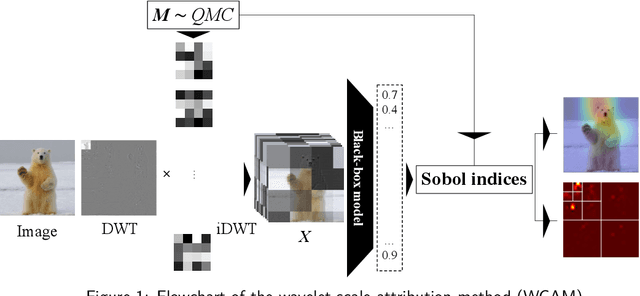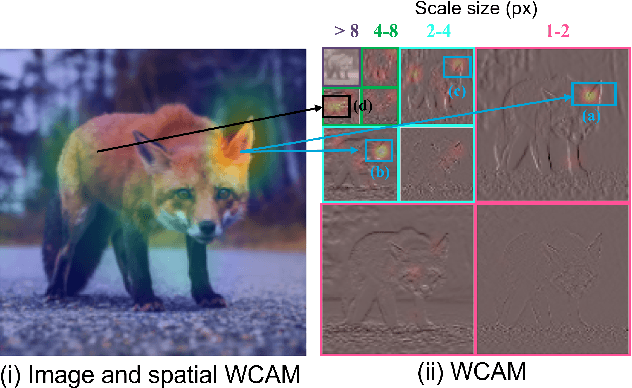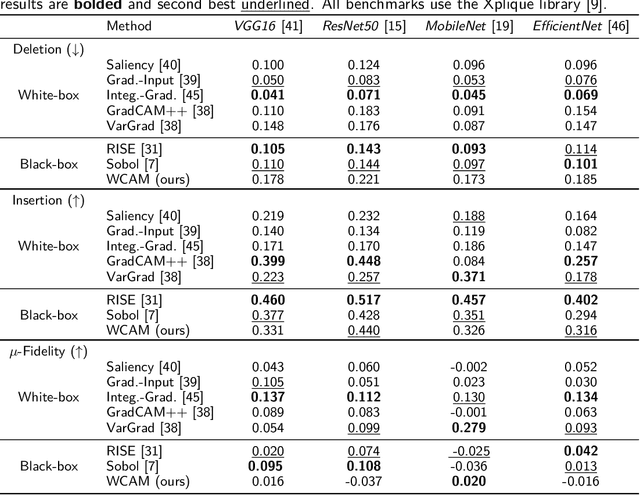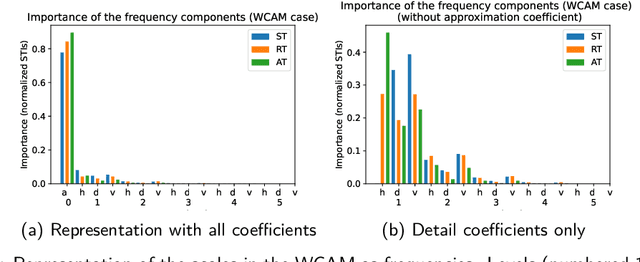Scale Matters: Attribution Meets the Wavelet Domain to Explain Model Sensitivity to Image Corruptions
Paper and Code
May 24, 2023



Neural networks have shown remarkable performance in computer vision, but their deployment in real-world scenarios is challenging due to their sensitivity to image corruptions. Existing attribution methods are uninformative for explaining the sensitivity to image corruptions, while the literature on robustness only provides model-based explanations. However, the ability to scrutinize models' behavior under image corruptions is crucial to increase the user's trust. Towards this end, we introduce the Wavelet sCale Attribution Method (WCAM), a generalization of attribution from the pixel domain to the space-scale domain. Attribution in the space-scale domain reveals where and on what scales the model focuses. We show that the WCAM explains models' failures under image corruptions, identifies sufficient information for prediction, and explains how zoom-in increases accuracy.
 Add to Chrome
Add to Chrome Add to Firefox
Add to Firefox Add to Edge
Add to Edge